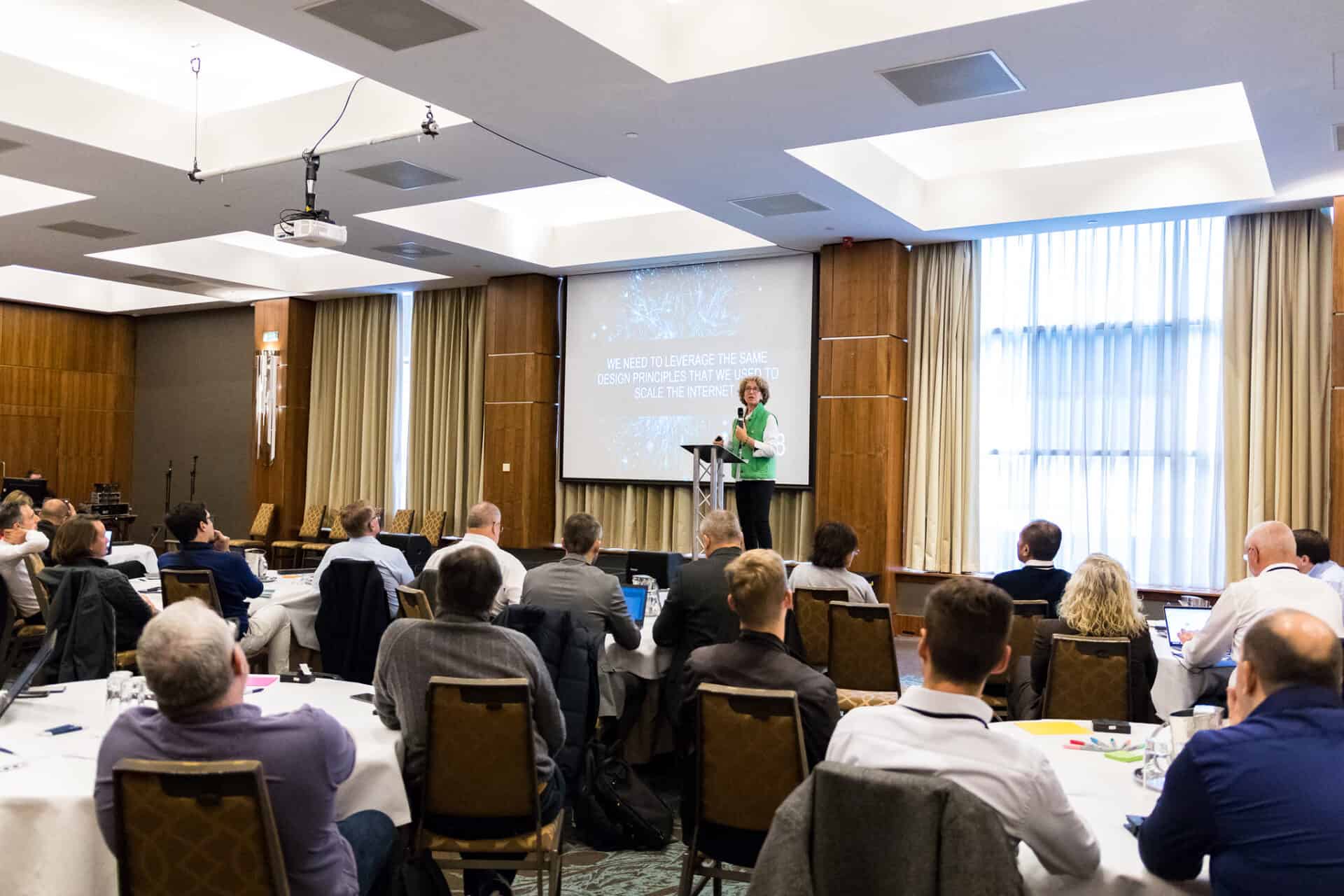-

Linus was born on December 28, 1969, in Helsinki, Finland. He enrolled at the University of Helsinki in 1988, graduating with a master’s degree in computer science. His M.Sc. thesis was titled “Linux: A Portable Operating System” and was the genesis for what would become the most important collaborative software project in history. In August 1991, Linus announced that he was developing the Linux kernel, proclaiming, “it won’t be big and professional.” Never in the history of technology has someone been so wrong. In spite of his humble proclamation, Linux has become the world’s most pervasive operating system. Today the Linux kernel forms the basis of the Linux operating system and powers billions of Android devices, powers ChromeOS, and has permeated almost every industry and form factor. Smartphones, TVs, appliances, cars, nuclear submarines, air traffic control, stock exchanges, and scientific research all run Linux. Linux also provides the underpinnings of the internet and the cloud computing industry. In 2005, citing a lack of free and open-source version control tools that met his needs for performance and scale, Linus famously created Git in only 10 days. Today Git is widely used in software development and for other version-control tasks such as configuration management and has become popular as an integral part of the DevOps culture. In 2000, Linus was listed by Time Magazine as Number 17 in the Time 100: Most Important People of the Century. Again, in 2004, Time Magazine named him one of the Most Influential People in the world. He was honored in 2008 with the Millennium Technology Prize by the Technology Academy Finland, “in recognition of his creation of a new open-source operating system for computers leading to the widely used Linux kernel.” He is also the recipient of the 2014 IEEE Computer Society Computer Pioneer Award. A true tech titan, he was admitted to the Computer History Museum Hall of Fellows, joining the ranks of the tech elite including Rear Admiral Grace Murray Hopper, Tim Berners-Lee, Gordon Moore, Ken Thompson, Dennis Ritchie, Steve Wozniak, and others. Torvalds remains the ultimate authority on what new code is incorporated into the standard Linux kernel.
-

Kelsey Hightower has worn every hat possible throughout his career in tech, and enjoys leadership roles focused on making things happen and shipping software. Kelsey is a strong open source advocate focused on building simple tools that make people smile. When he is not slinging Go code, you can catch him giving technical workshops covering everything from programming to system administration.
-
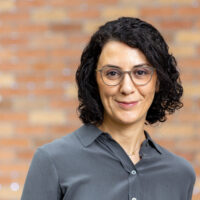 Hanna Hajishirzi Senior Director NLP Research, Allen Institute for AI & Associate Professor, Paul G. Allen School of Computer Science & Engineering, University of Washington
Hanna Hajishirzi Senior Director NLP Research, Allen Institute for AI & Associate Professor, Paul G. Allen School of Computer Science & Engineering, University of WashingtonHanna Hajishirzi is the Torode Family Associate Professor in the Allen School of Computer Science and Engineering at the University of Washington and a Senior Director of NLP at AI2.
Her current research delves into various domains within Natural Language Processing (NLP) and Artificial Intelligence (AI), with a particular emphasis on accelerating the science of language modeling, broadening their scope, and enhancing their applicability and usefulness for human lives. She has published over 140 scientific articles in prestigious journals and conferences across ML, AI, NLP, and Computer Vision. She is the recipient of numerous awards, including the Sloan Fellowship, NSF CAREER Award, Intel Rising Star Award, Allen Distinguished Investigator Award, Academic Achievement UIUC Alumni Award, and was a finalist for the Innovator of the Year Award by GeekWire. The work from her lab has been nominated for or has received best paper awards at various conferences and has been featured in numerous magazines and newspapers.
-
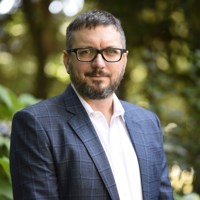
Craig is co-founder and CEO of Stacklok, a startup building community centric OSS capabilities to secure the OSS supply chain. Previously he worked at Google and was the founding product lead for Google Compute Engine. He also co-founded the Kubernetes project and bootstrapped the CNCF to support innovation and community aligned collaboration in the cloud native computing space. He co-founded Heptio which was acquired by VMware and managed the Tanzu R&D org post acquisition.
-

Lisa Seacat DeLuca leads the engineering, design, and product management organization at Unstoppable Domains innovating the future of the decentralized web. She is the 2nd Most Prolific Female Inventor in the world and as a technology executive for the past decade, Lisa brings emerging technology to life. Previously, Lisa spent 16 years at IBM as a Distinguished Engineer and Director of Product Management. Lisa holds a Masters of Science in Technology Commercialization from the University of Texas McCombs School of Business, and a Bachelors of Science in Computer Science from Carnegie Mellon University with minors in Business Administration and Multimedia Productions.
Lisa is an Inductee into the Women in Technology International (WITI) Hall of Fame, Entrepreneur Magazine listed Lisa as one of their “49 Female Entrepreneurs Who Are Reshaping the Business World”, she’s one of the 115 Most Inspirational Women in Web3 and the Metaverse, and she’s been featured in #LinkedInTopVoices in Technology list three years (2019 #2, 2018 #1, 2017 #2), and was an MIT 35 under 35. She is a TED speaker, a self-published author of two children’s books titled “A Robot Story” and “The Internet of Mysterious Things”, and the most prolific female inventor in IBM history. Her innovation portfolio includes over 1,000 patents filed in the United States and abroad, of which, over 650 have been granted, to date. The topic of her innovations include cloud, mobile, IoT, social, security, AI, commerce, blockchain, web3. Lisa is an AAAS-Lemelson Inventor Ambassador where she increases visibility to the importance of innovation. Lisa has spoken at numerous tech conferences and written articles to share her technology and innovation passion with others.
-

Dirk is the Head of the Open Source Program Officer at Verizon. Prior to that, Dirk was VMware’s Chief Open Source Officer, where he lead the company’s Open Source Program Office, directing the efforts and strategy around use of and contribution to open-source projects and driving common values and processes across the company for VMware’s interaction with the open-source communities. Before joining VMware, Dirk spent almost 15 years as Intel’s Chief Linux and Open Source Technologist. Before that, among other roles, he worked as Chief Technology Officer of SuSE and Unix Architect of Deutsche Bank.
Dirk has been an active developer and contributor in several dozen open source projects since the early 1990s, today most of his work is on the Subsurface dive log project and many of the related open source projects around that. Dirk holds a degree in Mathematics and Computer Science from the University of Würzburg, Germany. He lives in Portland, OR.
-
 Timothy Jordan Director, Developer Relations & Open Source, Google
Timothy Jordan Director, Developer Relations & Open Source, Google -

Britney is a senior product manager at Docker focused on improving the developer experience of Docker Hub and Trusted Open Source Content. If you have any questions about Docker Official Images, Docker-Sponsored Open Source program, or Docker Hub, she is the one to ask!
-
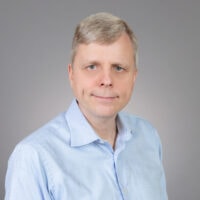 Dr. Leemon Baird Inventor of Hashgraph Consensus, Co-founder, Hedera, & Co-founder/Co-CEO, Swirlds Labs
Dr. Leemon Baird Inventor of Hashgraph Consensus, Co-founder, Hedera, & Co-founder/Co-CEO, Swirlds LabsDr. Leemon Baird is the inventor of the hashgraph distributed consensus algorithm, Co-founder of Hedera, and Co-founder and Co-CEO of Swirlds Labs. With over 20 years of technology and startup experience, he has held positions as a Professor of Computer Science at the US Air Force Academy and as a senior scientist in several labs. He has been the Co-founder of several startups, including two identity-related startups, both of which were acquired. Leemon received his PhD in Computer Science from Carnegie Mellon University and has multiple patents and publications in peer-reviewed journals and conferences in computer security, machine learning, and mathematics.
-
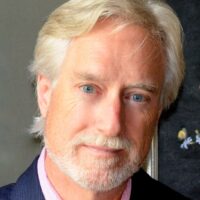
Andrew Aitken is a veteran in the open-source sector, having served as an open-source adviser to the White House, guest lecturer for Stanford’s Entrepreneur Program and founder of the industry’s only open-source think tank, and acts as the Chief Open Source Officer of Hedera. Most recently, Andrew was the global open-source leader at Wipro Technologies, championing open-source adoption for enterprises and delivering business value through open-source services and solutions. Aitken is an elected member of the Board of the Fintech Open Source Foundation (FINOS) and previously served as Wipro Board Adviser at the Open Source Security Foundation and the Linux Foundation Networking project. He was also on the board of OSEHRA, a non-profit dedicated to accelerating open-source health reporting. Andrew helped many of the industry’s leading OEMs and ISVs develop their open-source strategies along with numerous startups and enterprises.
-

Sirish joined Amazon in 2016 and held various engineering and product responsibilities across Amazon
Aurora and Amazon RDS before taking on his current role as GM of Amazon RDS. Prior to joining
Amazon, Sirish was an executive at Dropbox, where he held various roles focused on their B2B offering
(Dropbox for Business) helping the company scale though a sustained period of hypergrowth. Before
Dropbox, Sirish was an Associate Partner at McKinsey & Company, serving companies globally across a
range of strategy, operations, and technology issues. Sirish received his PhD and MS in Computer
Science from U.C. Berkeley, and B. Tech in Computer Science and Engineering from IIT, Madras. -
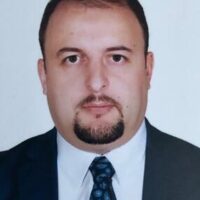
Dr. Hakim Hacid is The Executive Director and the Acting Chief Researcher of the AI Cross-Center Unit in the Technology Innovation Institute (TII), a cutting-edge UAE-based scientific research center. Prior to joining TII, he was an Associate Professor at Zayed University and contributed to research in the areas of data analytics, information retrieval, and security. He was also the Chair of the Computing and Applied Technologies Department. Dr. Hacid is a published author of many research articles in top journals and conferences and holds several industrial patents to his credit. His research specialization includes databases, data mining and analytics, programming, web information systems, natural language processing, and security. Dr. Hakim Hacid obtained his PhD in Data Mining/Databases from the University of Lyon, France. He also earned a double master’s in Computer Science (Master by Research and Professional Master) from the same university.
-
 Douglas Stebila Associate Professor, University of Waterloo and Governing Board member, Post-Quantum Cryptography Alliance
Douglas Stebila Associate Professor, University of Waterloo and Governing Board member, Post-Quantum Cryptography AllianceDr. Douglas Stebila is an Associate Professor of cryptography in the Department of Combinatorics & Optimization at the University of Waterloo. His research focuses on improving the security of Internet communications protocols and developing practical quantum-resistant cryptography. He is the co-founder of the Open Quantum Safe project, an open-source software project for prototyping and evaluating quantum-resistant cryptography. He holds an MSc from the University of Oxford and a PhD from the University of Waterloo.
-
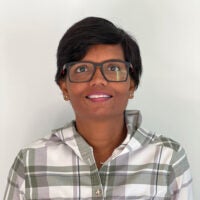
Anandhi Bumstead, director of engineering at OpenSearch within Amazon Web Services, brings nearly three decades of experience in distributed systems and open-source software. With a background in cloud computing, Anandhi made significant contributions during her tenure at Microsoft and most recently at AWS, where she leads engineering for the open-source OpenSearch Project. Beyond the tech world, Anandhi enjoys a variety of outdoor hobbies, with a particular love for spending time in the mountains. She holds a Master’s degree in computer science from the University of Washington and a Master’s in engineering from Arizona State University.
-

Robert Martin, a Senior Software and Supply Chain Assurance Principal Engineer at MITRE focused on the interplay of risk management, security, and assurance, author of over 60 standards, creator of CAPEC and CWE, and working on standardizing SBOMs and MITRE’s supply chain security System of Trust™.
-

Hilary Carter oversees the development of decision-useful research projects and content programs that support open source as a paradigm for mass collaboration at scale. Together, the Research and Communications department broadens the understanding of the impact of open source software, open hardware, open standards, and open data for people, enterprises, governments, and society at large.
Hilary’s career began in financial services with experiences in corporate finance, research and analysis, and global private banking. Her career pivoted to digital technology, where she focused on mobile communications and digital media consulting. Before joining the Linux Foundation, Hilary led a global, syndicated research institute focused on blockchain technology.
She earned an MSc in Management from the London School of Economics.
-
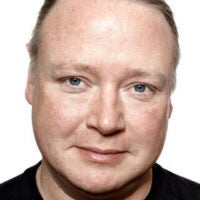
Brian has served most recently as General Manager and CTO of the Open Source Security Foundation (OpenSSF), has served as Executive Director of Hyperledger, and formerly as CTO of the World Economic Forum. He currently serves on the boards of the Electronic Frontier Foundation (EFF) since 2013, the Mozilla Foundation since 2003, and the Filecoin Foundation since 2021.
-

Dana Wang serves as the Chief Architect at the Open Source Security Foundation (OpenSSF), where she leads initiatives to improve the security of the open source ecosystems. She was previously a technology executive at JPMorgan Chase. She was instrumental in building and operating the edge network security controls in the public cloud to enable and protect internet facing applications. Her experience spanned cross solutions architecture, application security, building security guardrails, security incident response automation and orchestration, and payment products development. Before joining JPMorgan Chase, she focused on Single Sign On integrations and various portals development at Cigna. Dana is dedicated to making the open source ecosystem more secure and the world safer.
-

I am the AI Team lead for the OSPO creating the upstream strategy for Red Hat to align with open source communities aligned to our mission and technical vision.
My role as Sr.Principal Community Architect within Red Hat’s Open Source Program Office (OSPO) has allowed me to work in a variety of Linux Foundation communities such as the CNCF, FINOS, Green Software Foundation, LF AI & Data, vLLM and more. I have previously held leadership roles in FINOS and the CNCF Environmental Sustainability TAG.
Cara has over 15 years in marketing and community engagement with the primary focus being in the financial services industry. Cara holds a B.S. in Political Science from Virginia Polytechnic & State University.
-
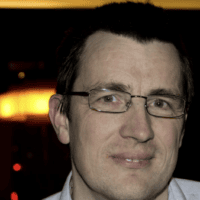
Ross has been working within the open source ecosystem for over 25 years. During that time, he has been active in code, documentation and community across many projects. He served for a number of years as an Officer of the Apache Software Foundation, including as the President. During his eleven years at Microsoft, Ross’ roles have fluctuated between internally focused culture and technology change, to external product development. Originally Ross was one of only a few Linux savvy individuals, in what was then called Windows Azure. Today he is one of many likeminded individuals working to ensure that Azure is the best place to run your open source based workloads. Ross believes that success comes through partnership. Ross has built many such partnerships with key open source projects and adjacent companies, leading to the creation of many solutions that bring open source to the market for those looking to buy rather than build, while simultaneously partnering with the communities that make this possible through their build investments.
-

Jim’s career spans three of the largest technology trends to rise over the last decade: mobile computing, cloud computing and open source software. Today, as executive director of The Linux Foundation, he uses this experience to accelerate innovation in technology through the use of open source and Linux.
At The Linux Foundation, Jim works with the world’s largest technology companies, including IBM, Intel, Google, Samsung, Qualcomm, and others to help define the future of computing on the server, in the cloud, and on a variety of new mobile computing devices. His work at the vendor-neutral Linux Foundation gives him a unique and aggregate perspective on the global technology industry.
Jim has been recognized for his insights on the changing economics of the technology industry. His writing has appeared in Businessweek, Wired, and other top technology journals, and he is a regular keynote speaker at industry events. He advises a variety of startups, including Splashtop, and sits on the boards of the Global Economic Symposium, Open Source For America, and Chinese Open Source Promotion Union.
